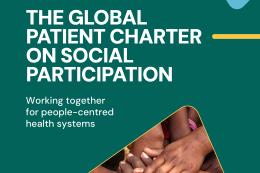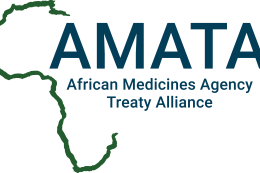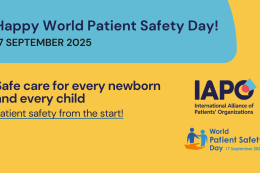Cultivating trust in the healthcare system

Patients need to be able to trust in the interactions between pharma, healthcare professionals and medical representatives
By Thomas Cueni, IFPMA Director General and co-chair of the APEC Biopharmaceutical Working Group on EthicsAn efficient healthcare system depends on mutual trust between patients, healthcare professionals, regulators and pharmaceutical companies – but how should that translate concretely into the day to day reality of whether a healthcare professional should be given a subscription to a journal or a box of chocolates by a pharmaceutical company? While the most important part of the R&D biopharmaceutical industry’s work is the discovery of new medicines and vaccines, it also needs to develop, promote, sell and distribute them in an ethical manner and in accordance with all the rules and regulations for medicines and healthcare. It’s not just what pharmaceutical innovation achieves that matters, but also how the industry goes about achieving it.
This is why we want to spread the word about the new global pharma industry Code of Practice that bans gifts and promotional items and emphasizes the importance of educational and professional interactions between healthcare professionals and medical representatives. The Code is coming into effect on 1 January 2019.
Patient-centered care has emerged in the past decades as the solution for better-functioning healthcare systems. It represents a shift from “doctor knows best” to a new pact between patients and healthcare professionals, where the patient is actively involved in any decisions about their wellbeing – providing feedback to healthcare professionals about how a medicine is working for them and which ones fit most with their daily schedule. However, to empower patients, the right environment is needed based on trust. Trust has been shown to be a critical factor influencing a treatment decision including patient acceptance and adherence to prescribed medicines and recommendations, as well as patient involvement and self-care.
R&D-based biopharmaceutical companies are the innovators behind most new medicines and vaccines. As such, they are best equipped to share much of the information on medicines and their application, and have the responsibility to communicate this scientific knowledge with healthcare practitioners. To keep pace with medical innovation, those responsible for making treatment decisions need continuous updates and dialogue so that patients have access to the treatments they need, and that healthcare professionals have up-to-date, comprehensive information about the medicines they prescribe. But sometimes, something as small as seeing a branded pen or calendar in their doctor’s practice may cause patients to question whether the prescription has been made with their best interest at heart.
Creating and reviewing the framework for ethical interactions between patients, healthcare professionals and medical representatives
What might have been considered normal practice a few years ago, may no longer be acceptable. As an industry that has such a profound impact on people’s lives, the R&D-based biopharmaceutical industry is constantly trying to live up to the trust that so many – patients, healthcare professionals, regulators, policy makers from all over the world – have in medicines and vaccines we make. Standing still is not an option.
This spirit of constantly checking we are living up to society’s expectations is nothing new. Our R&D-based biopharmaceutical industry Code of Practice was first drawn up in 1981, and it was the first one of its kind for any business sector. Indeed, it set a precedent for many other global self-regulation initiatives of industry practices that were to follow. Initially, correct information on the effects and side effects of medicines were at the core of the Code and was necessary to build trust among patients, healthcare professionals, and other stakeholders for the innovations we would bring to the market. Today, through periodic updates of the Code, expectations regarding compliance are much more comprehensive.
With the latest IFPMA Code of Practice that will come into effect on 1 January 2019, we are again setting the bar higher than with previous Codes. The 2019 Code is marked by two important changes. First, several sections have been updated, including the introduction of a ban on gifts and promotional aids (for prescription medicines) and we have also added the new category of informational or educational items. Second, we have developed our Ethos, which will help instill a culture of ethics and integrity needed to guide our business behaviors and interactions between IFPMA members and the healthcare community.
Focusing on the educational nature of healthcare professionals interaction and patient empowerment
We think that the so called “goodies” or promotional aids, even if they are of minimal value, send the wrong message, as they trivialize the important, professional relationship that must exist between our representatives and the healthcare professionals. This relationship is based on a mutual exchange where both sides win by sharing expertise and scientific knowledge, enabling the development and effective use of new medicines. For this reason, the new IFPMA Code of Practice is banning gifts and promotional aids worldwide, wherever our companies and association operate. This brings the rest of the world in line with current European and US guidance.
Any exceptions based on the custom of gifts to mark significant national, cultural or religious events (for example, mooncakes or condolence payments) have been removed. IFPMA members are also banning all promotional items for healthcare professionals for use in their offices (including post-its, calendars, diaries, etc.). The only items that can be provided to healthcare professionals – in the context of company organized events – are company-branded pens or notepads in order to take notes during the meeting.
We have also added the new category of informational or educational items. These are things like scientific books, journal subscriptions or memory sticks with educational data that may be provided to healthcare professionals for their own education or for the education of patients, provided that the items do not have independent value. Product branding is not allowed, in the same way as for items of medical utility (such as inhalers, or devices to learn how to self-inject).
The latest IFPMA Code emphasizes the educational nature of these important interactions and supports high-quality, patient-centered health services and further focuses on the value we bring to patients, and to society as a whole.
Trust remains the crucial bedrock of these exchanges and IFPMA encourages doctors, pharmacists, nurses and patients to become aware of our updated ethical standards. The better our stakeholders understand our standards and hold us to account, the easier it will be for us to live-up to our commitments.



